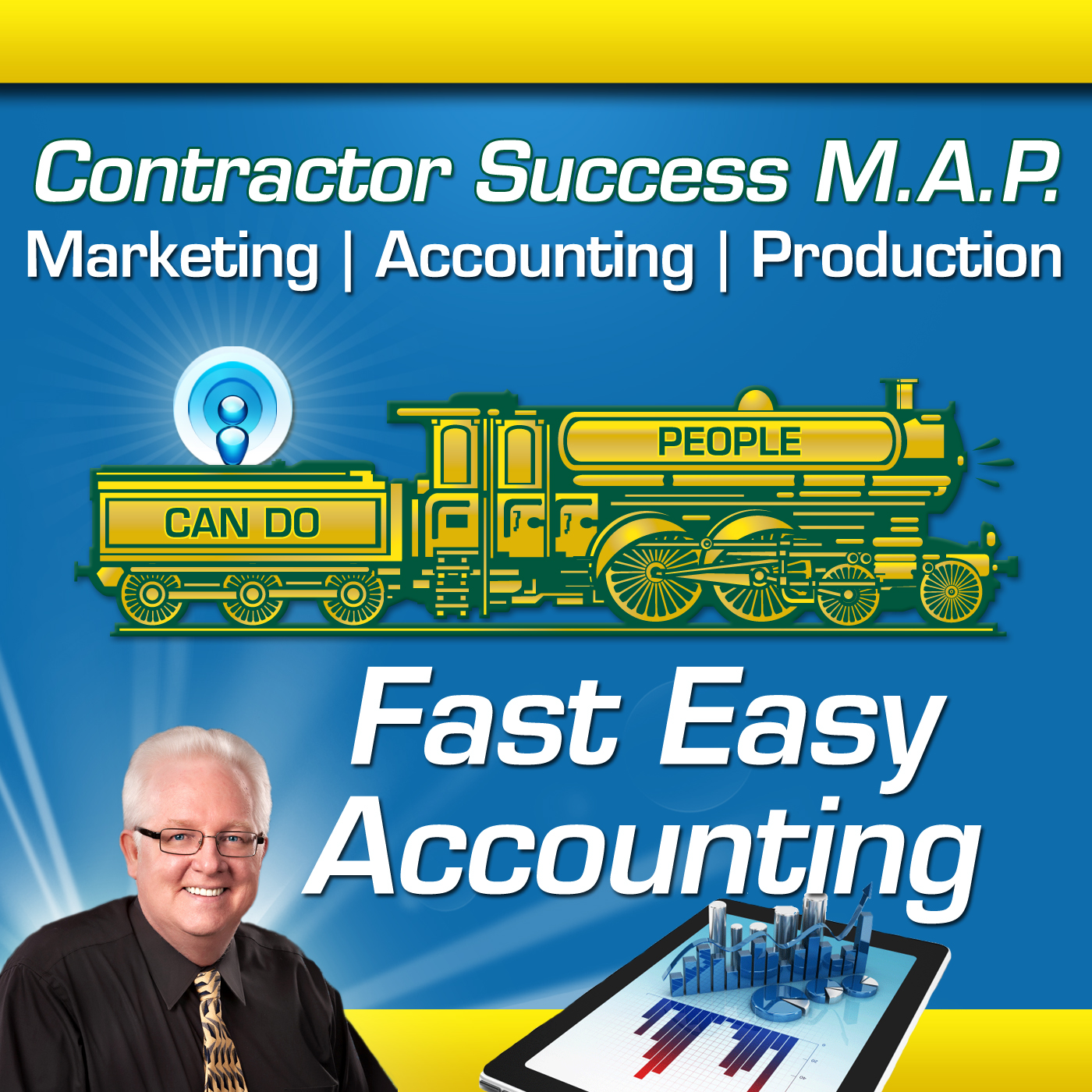Key Financial Concepts For Construction Company Owners
This Podcast Is Episode Number 540, And It's About Key Financial Concepts For Construction Company Owners Not everyone knows construction accounting, and it is easy to assume all accounting is the same. Even if you have outsourced your financial functions, as a small construction business owner, having a solid understanding of critical financial concepts is crucial to work with your advisor and 'speak their language". This article outlines several essential concepts that every small business owner should know. Construction is a tricky business, and people's failure is expected. Most of our clients have either failed or come very close. It doesn't matter how many times you are knocked down; it only matters that you learn your lessons, get up, and go again. We noted these lessons years ago, owning and operating our construction company. By building a system and gaining insight from us, you can pick up from our mistakes, which you don't have to go through and can start avoiding before it comes crashing down. Get that one thing working, then move on to the next one. What is the most annoying thing you can quickly fix? We talk about accounting because that is our primary focus. Start with the basics: Open a business checking account. Use a dedicated credit card for the business (if using a personal card). Create invoices, present them to your customers, collect the money, and get it in the bank (Do you have an easy way for your clients to pay you?). Collect the money ASAP because, without cash flow, you are out of business. Basics of income and expenses As a construction business owner, you must understand how you generate and spend money. This way, you can maintain fiscal responsibility while also promoting business growth. Income statements (Profit & Loss) versus cash flow Business owners should always stay on top of the latest cash flow analyses and projections to make smart short-term financial decisions. Remember, a P&L doesn't tell you if you can pay your bills or how liquid your business is. Keep that in mind! Operating cash flow Understanding a company's operating cash flow is vital for assessing its performance and cash runway. Gross sales versus net profits As a small business owner, paying attention to sales and expenses is vital to ensure a healthy and well-managed business. Remember, gross sales don't equal net profits. Understanding every expense, knowing the industry averages, and having enough cash to thrive long-term are crucial. Reading a balance sheet It's important to understand the line items on a balance sheet. Taking a deep dive into these details can provide valuable insights into your financial well-being. Soon, you will instinctively know if something doesn't look right. Return on equity This concept helps us decide whether to keep investing in the business or look into other investment options. You see, there are always opportunity costs to consider for every investment. Materials A construction contractor may purchase material and resell it to their customer. Thereby thinking it is a reimbursable expense. (You lose money when doing this). Remember all invoices to the Customer (Retail, General Contractor, Spec Builder, Developer) are income. Every line item on a customer invoice is ALL INCOME. If the words are on the invoice, then the invoice is either taxable or non-taxable based on other factors. Washington State, for instance, has a clear explanation. Purchases for the material are Cost of Goods Sold or are expenses if you are short-cutting your accounting. I have seen financial statements backed out because they will reflect reimbursable inco

